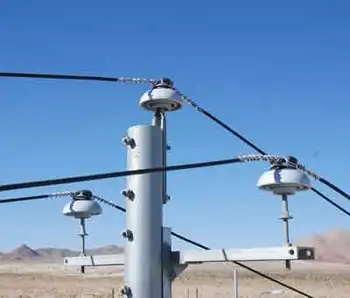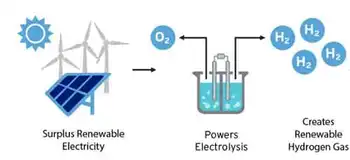Impending “Perfect Storm” demands smart grids
SANTA CLARA, CALIFORNIA - State utilities and regulators must embrace the innovative electricity technology available today if they are to provide American homes and businesses with enough power and reliable electricity to meet their growing demands, said Kurt Yeager, executive director of the Galvin Electricity Initiative.
Delivering a keynote address before executives and entrepreneurs from leading new technology energy companies during ConnectivityWeek in Santa Clara, Yeager said utilities must transition to a more consumer-focused, energy-efficient system remain profitable in the future.
“The industry is now on the cusp of a ‘perfect storm,’” said Yeager. “Between increasing electricity costs, and climate and security concerns, it is clear that now is the time for change.”
Yeager also addressed the need for utility companies and regulators to engage the consumer in system transformation.
“It is time we bring down the ‘iron curtain’ of electricity — the meter — and focus on technologies that can aid the consumer in reducing their energy consumption, and in the process alleviate stress on the aging infrastructure,” said Yeager. “This type of adjustment is good not only for the consumer, who can claim control over their own energy destiny, but also for the utilities who are being stretched beyond capacity with increasing demand for electricity.”
During the ConnectivityWeek address and following panel discussions, Yeager shared some of the InitiativeÂ’s key proposals that will pave the way for a more intelligent electricity grid:
Voters need to “recall” the grid. Our power system needs a recount — it’s costly, antiquated and dirty. When candidates talk about energy, they limit the discussion to oil and renewable resources. If they really want to fight climate change and make the United States energy-independent, they have to modernize the grid and provide Americans with electricity choices that are smarter, better and cleaner. If not, we will remain enslaved to the whims and weaknesses of an obsolete, inefficient, unreliable power system. Come November, voters do need to vote for change — changing the grid.
State regulators must allow free, competitive retail markets for electricity service. Unlike successes experienced by the telecommunications industry, state-level efforts to deregulate electricity service have been ineffective. Rather than spurring a free market where consumers have choices and utility companies strive toward greater efficiency, reliability and customer service, deregulation has simply led to a new regulatory structure in which utilities still view regulators as their real customers. The key is an open market that enables and encourages innovative entrepreneurs to provide the highest value electricity service to everyone — serving the interests of consumers and suppliers alike.
Utilities need incentives to drive grid modernization efforts. What is preventing smart microgrid development — the best technology available to modernize the unreliable, inefficient and insecure U.S. electric grid? The absence of performance-based utility compensation. State regulators and policymakers must remove the antiquated regulations to allow entrepreneurs, commercial electricity consumers, builders and residential communities to create smart microgrids by eliminating out-of-date restrictions, such as running wires across a public street or putting a pipeline underneath it. Also, establish strict connectivity standards to improve the security of the electric power system.
Compensate utilities for efficiency programs and customer service. Today, utilities are compensated for selling more electricity, not for providing quality service or efficiency programs, while consumers receive imperfect power for their homes and businesses and the infrastructure is deteriorating. Instead of rewarding utilities for selling as much power as they can through a broken machine, we should establish performance-based state utility regulation where it is the quality of the service, not just the quantity of the good, which determines the utilityÂ’s financial strength.
ConnectivityWeek brings together executives and entrepreneurs from some of the leading companies on the cutting edge of new products and technologies that change how energy is created, distributed and used — ranging from smart devices for home appliances to environmental controls.
Related News

Hydro Quebec to increase hydropower capacity to more than 37,000 MW in 2021
MONTREAL - Hydro Quebec plans to add an incremental 245 MW of hydro-electric generation capacity in 2021 to its expansive portfolio in the north of the province, bringing the total capacity to 37,012 MW, an official said Friday
Quebec`s highest peak demand of 39,240 MW occurred on January 22, 2014.
A little over 75% of Quebec`s population heat their homes with electricity, Sutherland said.
The province-owned company produced 205.1 TWh of power in 2017 and its net exports were 34.4 TWh that year.
Sutherland said Hydro Quebec`s reservoirs are currently at "unprecedented levels" and the company could export more of its electricity to New…




